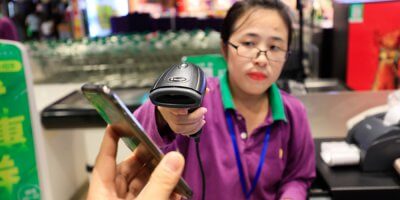
Can Vietnam’s crowded e-wallet market take more players?
Let’s not leave senior citizens out of the cashless society
E-wallets or digital wallets are modern-age financial capabilities that are growing popular across Asia. The tool is becoming the preferred method of payment by consumers as the region moves to become ‘cash-lite’.
A strong reason for the growing preference is the convenience it offers in payments and transactions. The abundance of deals and discounts being offered by e-wallet operators have also made it an attractive capability. The payment technology is becoming more prominent in the market with SMEs adopting them extensively, e-commerce brands and ride-hailing platforms also offer the capability actively.
Given the benefits of convenience, and not having to root around for change, the technology is not just for the tech-savvy younger generation — even senior citizens are intrigued by the potential of the technology to make their days easier, particularly as it becomes an expected vehicle for payments.
During a recent e-wallet roadshow in Penang, it was learned that the elderly are in fact keen to embrace the technology, though many are unfamiliar with how it works, and need a helping hand to build confidence using it.
Margaret Chin, 75, told reporters that she has never used in-app e-wallet services despite being an avid user of e-hailing apps.
She explained that she was scared to figure it out on her own as she fears that she might create a system error. Chin, who has since continued to pay for fares in cash, added, “Although I want to learn to use an e-wallet, I still need assistance.”
An eighty-one-year-old, Teresa Low, another keen consumer, also came forward to share that she did not know to utilize a state-released e-wallet app to pay for her parking fees: “I have heard that the state government will introduce this app to replace parking coupons but I don’t know if I should leave my phone inside the car to let the officers know that I have paid the parking fee.”
It is clear that there is a general lack of understanding in how e-wallets work and how payments are processed. Since transactions happen digitally and no physical monetary exchange was involved, there is an ingrained fear that payment was not made.
Their confusion and concerns highlight that operators and players within the digital wallet space have been quick to launch the capability without offering proper usage guidance. While the core idea of switching to e-wallets from using cash is for convenience, it does mean that the concept is translated well among users — especially the silver-haired.
Organizers of the roadshow were keen to address this awareness issue by offering assistance and solutions as they understand the need to educate the public.
The State assemblyman, Chris Lee Chun Kit said, “We do not want to leave anyone out in the cashless society, especially senior citizens. We hope we can hold more roadshows to help people be more well-informed about using e-wallets.”
Public agencies, as well as e-wallet operators, must nurture a greater sense of partnerships to help users — old or young — to use the technology efficiently.
Without such efforts, the journey towards being a cashless society or even a cash-lite one could be hindered and leave many in our society disconnected.
READ MORE
- Strategies for Democratizing GenAI
- The criticality of endpoint management in cybersecurity and operations
- Ethical AI: The renewed importance of safeguarding data and customer privacy in Generative AI applications
- How Japan balances AI-driven opportunities with cybersecurity needs
- Deploying SASE: Benchmarking your approach


